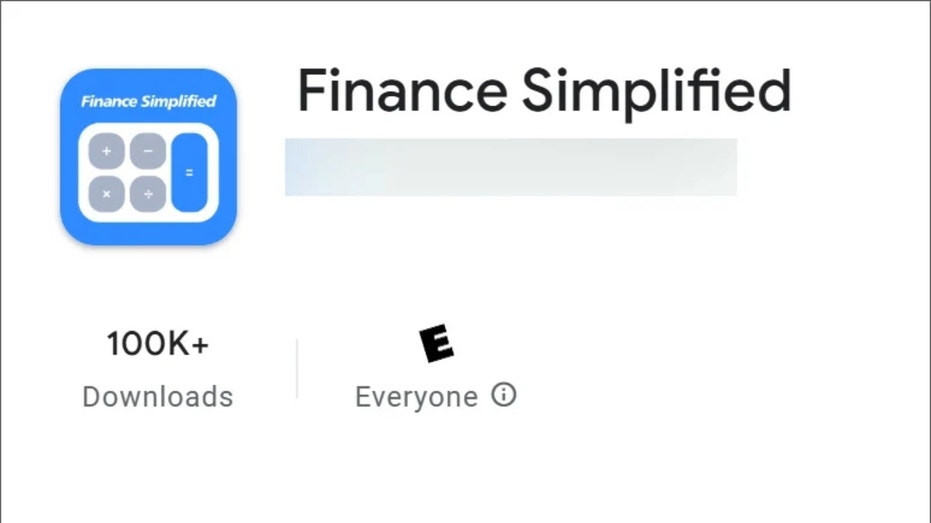Dangerous Malware Poses Threat Through Fraudulent Loan Applications

The Rise of SpyLoan Apps
In today’s digital landscape, fraudulent SpyLoan applications are proliferating, yet many individuals continue to fall victim to their deceptive tactics. These apps promise quick and easy loans with attractive repayment terms, but their true intention is far more sinister: they seek to steal your personal information, including sensitive contacts, images, and files. Once a user engages with these apps, the operators begin to leverage the stolen data for blackmail.
The Deceptive Nature of SpyLend
One particularly notorious app, SpyLend, masqueraded as a legitimate financial management tool named “Finance Simplified” on the Google Play Store. This app, which garnered over 100,000 downloads, specifically targeted financially vulnerable individuals by promoting quick loans with minimal documentation. Alarmingly, despite multiple user reviews warning of harassment and blackmail, the app’s popularity surged from 50,000 to 100,000 downloads in just one week.
Permissions and Data Theft
Upon installation, SpyLend requested an alarming number of permissions that far exceeded what would typically be necessary for a financial application. These permissions included access to contacts, SMS messages, call logs, photos, and location data, allowing the malware to covertly gather extensive personal information from users’ devices.
The Cycle of Extortion
The data collected by SpyLoan applications fuels a vicious cycle of scams and extortion. Users are lured in by attractive loan offers, only to have their information weaponized against them if they fail to meet repayment demands. Operators may resort to harassment, threatening to leak private photos or contact friends and family, creating an environment of fear and coercion. In extreme cases, victims have reported instances of public shaming or even the creation of deepfake content using stolen images, which can have devastating psychological and financial impacts.
Google’s Response
In response to the growing threat, Google has removed the SpyLend app from the Play Store. A spokesperson stated that Android users are protected against known versions of this malware through Google Play Protect, which is enabled by default on devices with Google Play Services. This feature provides warnings and blocks apps known for malicious behavior, even those from external sources. However, it is crucial to note that Google Play Protect is not infallible and may not catch all emerging malware threats.
Understanding the Threat Landscape
SpyLend is particularly dangerous due to its ability to siphon a vast array of personal information. It can access contact lists, call histories, read banking alerts from text messages, and even capture photos and videos stored on the device. Additionally, it tracks real-time location every three seconds, records past locations and IP addresses, and saves the last 20 copied texts from the clipboard. The financial data it gathers, such as loan histories and banking SMS messages, is often sold to other cybercriminals, putting users’ entire digital lives at risk.
Protecting Yourself from Malware
To defend against the threat of SpyLoan apps and similar malware, consider the following precautions:
1. **Stick to Reputable Sources**: Only download apps from well-known banks, credit unions, or lenders recognized by regulatory bodies.
2. **Utilize Antivirus Software**: Strong antivirus protection on all devices can detect and prevent malicious apps and alert you to phishing emails and ransomware scams.
3. **Download from Trusted Stores**: While the Google Play Store is generally safer than other options, it is not foolproof. Avoid downloading apps from unknown websites or unofficial stores.
4. **Scrutinize App Permissions**: Be cautious of apps that request excessive permissions unrelated to their function. Legitimate loan apps should only require necessary permissions.
5. **Read Reviews**: Prior to installation, thoroughly check user reviews for any signs of harassment or misuse of personal data.
6. **Report and Uninstall**: If you suspect an app may be a SpyLoan, uninstall it immediately, revoke its permissions, and report it to the appropriate authorities.
If you’ve already shared sensitive information, consider changing passwords and strengthening your account security. Using a password manager can help you create and store complex passwords securely.
The Hidden Costs of “Free” Apps
The allure of quick and easy money can be compelling, especially in challenging financial times, making it easy to fall prey to these scams. However, safer alternatives for borrowing exist. It’s wise to avoid online loan applications unless they are from established financial institutions. Furthermore, tech giants like Google must take accountability for allowing these malicious apps on their platforms, especially when user complaints indicate their harmful nature.
Your Experiences Matter
Do you believe Google is effectively addressing the issue of predatory loan applications? Share your thoughts and experiences with us for further discussion.
For more expert tech tips and security alerts, subscribe to our newsletter. Stay informed to protect yourself from the ever-evolving landscape of cyber threats.


